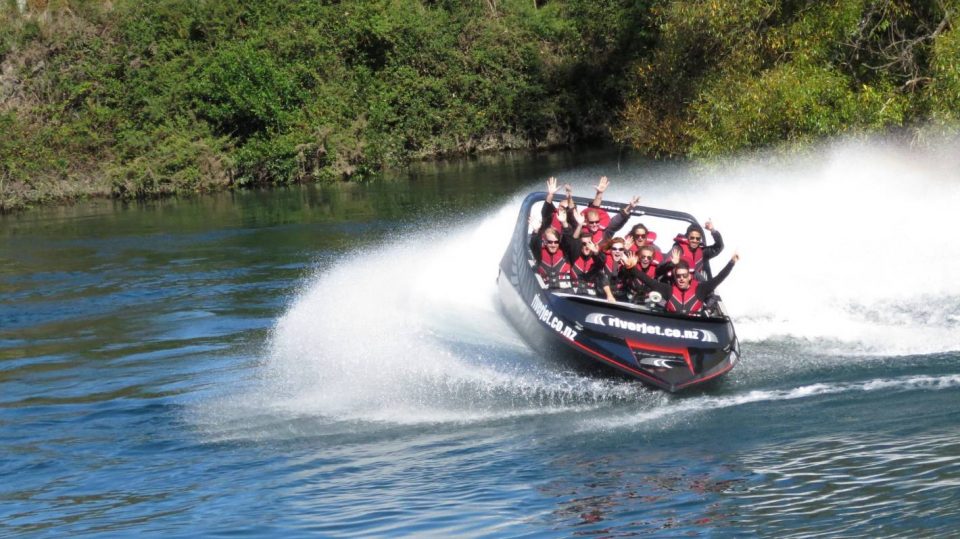Supplied
Tourism Industry Aotearoa suggested to the Government that in its first 100 days it should give every New Zealander a $200 travel card.
An international airline lobby group, which includes Air New Zealand as a member, is calling on governments to give their citizens vouchers to spend on travel as a way to boost domestic tourism.
The International Air Transport Association (Iata) has identified five ways that governments can help stimulate air travel, which is facing projected global losses of US$39 billion (NZ$55b) in 2021.
The initiatives include waiving government charges, taxes and fees to airlines and passengers, route subsidies for domestic flights, financial incentives to airlines for operating flights, advance ticket purchases by governments that can be used for official travel or distributed to the public, and passenger travel subsidies in the form of vouchers for passengers or as a percentage cash-back on overall travel costs.
The New Zealand Government, which is a 52 per cent shareholder in Air New Zealand, has granted airlines subsidies to operate international cargo flights from New Zealand and provided financial assistance to domestic operators to ensure capacity, regional connectivity and essential services continued throughout the Covid-19 pandemic.
READ MORE:
* Why isn’t New Zealand among the countries offering serious travel incentives?
* Why governments are paying people to go on holiday
There have also been calls from these shores for a travel voucher scheme to be launched.
Tourism Industry Aotearoa suggested to the Government that in its first 100 days it should give every New Zealander a $200 travel card to stimulate domestic tourism outside weekends and school holidays.
In a research paper looking at how to deal with the pandemic’s impact on tourism Otago University MBA student Anthony Gardiner suggested the Government invest $500 million loading a $100 e-voucher onto every New Zealander’s Covid-19 contact tracer app.
Similar domestic travel voucher schemes have been used in Italy, Japan, Iceland, Tasmania, Thailand and the UK.
ROSA WOODS/Stuff
Tourism Minister Stuart Nash says the Government has given substantial financial support to the aviation industry and tourism businesses.
However, a spokeswoman for Tourism Minister Stuart Nash said the Government had not considered giving taxpayer subsidies in the form of vouchers or cash back schemes to holidaymakers.
“Support for the tourism and hospitality sector is being delivered in more direct ways to assist businesses and workers.”
Nash said the Government was investing in both the promotion of domestic tourism and direct support to tourism businesses, which included substantial financial support to the aviation industry.
“We recognise the impact the pandemic has had on many business and industries, such as the tourism industries, and we appreciate the challenges it continues to present,” Nash said.
Effective border restrictions and health controls were a critical aspect of the Government’s response, to keep New Zealanders safe and protect businesses from a global economic shock, he said.
Support to tourism businesses included a $400m Tourism Recovery Package, however, the relief fund came under criticism for the way 130 tourism businesses were chosen to receive cash grants of up to $500,000.
Tourism businesses had drawn down nearly $300m in interest-free loans under the Small Business Cash Flow Loan scheme, and tourism and hospitality businesses accounted for about 18 per cent of all small businesses who had accessed it, Nash said.
CHRISTEL YARDLEY/Stuff
Air New Zealand has received financial support from the Government in the form of a $900m loan and wage and cargo subsidies.
It was now looking for new ways to encourage domestic tourism through a $112m annual budget for tourism marketing and promotion activities through the Crown entity Tourism NZ.
Prior to Covid-19, 60 per cent ($23.7b) of New Zealand’s tourism dollar came from domestic travel and New Zealanders previously spent $9b on overseas travel per year, he said.
“Capturing a portion of this spend domestically while our borders are closed will be critical to the sector’s recovery. ”
Tourism NZ has been tasked with kick-starting domestic tourism and has a long list of promotions underway, he said.
Iata chief executive Alexandre de Juniac said governments must add market stimulation measures to the support they were giving to keep aviation financially viable.
”Many of the support packages are running out, but industry losses continue to mount,” de Juniac said.
Financial support must come in ways that do not further inflate debt, he said.
”Any government stands to benefit by including proven stimulus measures into their economic recovery plans. When people travel, economies prosper and grow,” de Juniac said.


